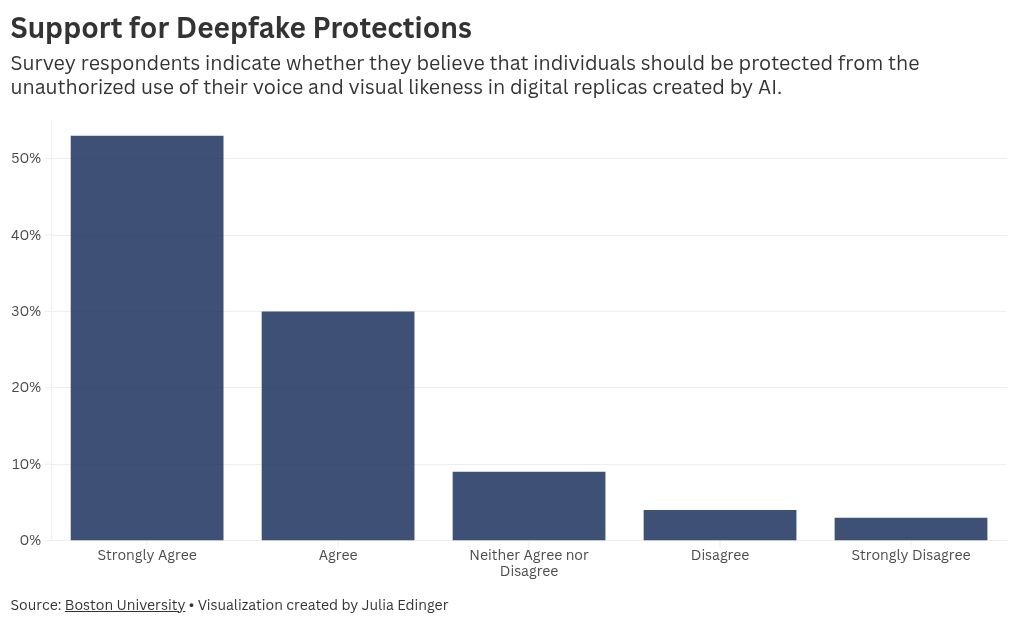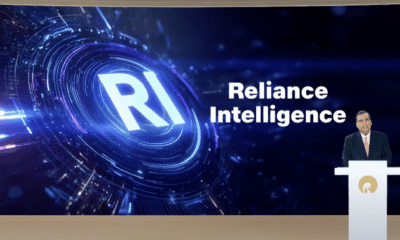AI Insights
The future of tennis broadcasting: Excitement-driven AI sports commentary

ProsodyLM was pre-trained on 30,000 hours of audiobooks and ultimately demonstrated better prosody understanding than prior models across various categories. ProsodyLM could, for example, correctly recognize emotion and stress in speech utterances, without being trained to perform those tasks. By explicitly tokenizing the prosody information and content, the resulting language model can generate very expressive speech, develop a preliminary understanding of emphasis and emotion and successfully clone the styles in reference speech.
“Now, instead of AI commentators that speak in a monotone level of excitement and sound unnatural to audiences, these tools can express a high excitement level just like human commentators, who get much more expressive during a very exciting rally,” Zhang said.
Looking forward, once the prototype has advanced to production and excitement-driven sports commentary is rolled out in official tennis tournaments, a next step could be letting fans personalize the sports commentary, Feris said. For example, fans could decide if they want high versus low excitement commentary. In the meantime, Zhang said, the team is receiving a lot of interest from researchers and clients working on other sports like Formula 1 car racing.
In addition, this excitement-driven AI sports commentary was part of an IBM “Behind the Scenes” 2025 US Open demo this year of emerging tennis technologies. This means that in the not-so-distant future, you might want to tune in more closely to see if you can detect whether it’s a human or an AI announcer whipping up the crowd after an overhead smash or a tricky drop shot.
AI Insights
Reese Witherspoon Thinks AI Needs More Girlbosses

Photo: TheStewartofNY/WireImage
One thing about Reese Witherspoon? She is going to get women into male-dominated spaces. And if those spaces are an environmentally disastrous, creative wasteland designed to eliminate the human touch from art? Well, they could still use a feminine touch. The actress recently told Glamour that it’s “so important that women are involved in AI” lest they be left behind by the filmmaking industry.
Witherspoon and her The Morning Show co-stars are on the cover of Glamour this month to promote the show’s upcoming fourth season, and during her interview Witherspoon spent a lot of time talking about AI. The actress brought it up herself when asked how she avoids burnout in an ever-changing industry.
“I’m a very hard worker, and I like to change and adapt to new structures and new environments. I’m always looking forward to how media is evolving and how I can help be part of bringing women along in those emerging industries,” Witherspoon said. “And now we’re doing it with AI. It’s so, so important that women are involved in AI … because it will be the future of filmmaking. And you can be sad and lament it all you want, but the change is here.”
The actress added that there will “never be a lack of creativity and ingenuity and actual physical manual building of things.” “It might diminish,” she noted, “but it’s always going to be [of] the highest importance in art and in expression of self.” Hmmm.
Siding with the diminishment is not an amazing look, but it seems that Witherspoon is wholly committed to Team AI. She told the magazine that she uses AI tools “every day” for different tasks. “I use search tools, like Perplexity, every day,” Witherspoon said, “I use Vetted AI. Like, if you’re buying a blender, it’ll show you six different blenders and also recommend the best product.” For about 20 more seconds of your time, you can Google “best blender 2025” and get the same thing without contributing to the depletion of the world’s water supply, but go off.
Witherspoon didn’t stop there, going on to sing the praises of her AI assistant. “Simple AI is an AI assistant that can be really helpful for anyone out there who doesn’t want to have to make a doctor’s appointment because you don’t want to sit on hold or deal with the problems of navigating hospital systems,” she said, sounding a lot like she might be angling for a seat on the board.
This is not the first time Witherspoon has gone all-in on gender equality in the latest tech innovations. In 2022, her production company announced it would be partnering with a women-focused NFT collective to adapt the crypto-backed images into TV and movies. So far, nothing has come out of that partnership, but maybe Witherspoon’s foray into AI will be more fruitful. I look forward to the season of Big Little Lies where everyone looks a little too smooth and Nicole Kidman has a sixth finger. That’s feminism.
AI Insights
BCCC integrates artificial intelligence lessons into workforce programs – The Coastland Times

BCCC integrates artificial intelligence lessons into workforce programs
Published 2:32 pm Wednesday, September 3, 2025
- Understanding the impacts and potentials of artificial intelligence (AI) (such as this generated image) will help students enter the workforce with relevant skills that keep pace with the industry, states Beaufort County Community College. Courtesy BCCC
Beaufort County Community College (Beaufort CCC) is introducing artificial intelligence (AI) lessons into its heating and air technician and construction and building maintenances courses, making it one of the first community colleges in North Carolina to embed this technology into short-term workforce training, noted a BCCC news release.
The initiative is starting with courses in its heating and air technician program (HVAC I, II, and III) and construction and building maintenance program (Apartment Maintenance and Electrical Fundamentals). By weaving AI-related topics into these fields, Beaufort CCC is preparing students to work in an industry landscape where smart technologies and automated systems are becoming increasingly standard. Over the next two years, the college will integrate AI lessons into all its industry training and workforce initiatives in the Division of Continuing Education.
“AI can not only augment our abilities and professionals but inspire in our students the hope to achieve greater things both using AI as an advanced tool and a way to continually develop their skills to the next level,” said Justin Rose, director of industry training and workforce initiatives. “We want our students to excel in their trade and be competitive in emerging technology so they can be a leader in their field.”
The lessons cover practical applications such as AI-assisted fault detection in HVAC systems, predictive maintenance in electrical networks, and smart building management technologies. These additions align with growing industry demand for technicians who can work confidently with both traditional systems and emerging digital tools.
Workforce programs at Beaufort CCC are designed to meet immediate regional employment needs, and adding AI awareness ensures graduates can step into careers with relevant, forward-looking skills. Students will earn Microsoft badges and trophies alongside their industry recognized credentials and Beaufort CCC certificate of completion.
“This approach keeps our programs current and ensures that our graduates are employable and adaptable,” said Dr. Stacey Gerard, vice president of continuing education. “Employers want workers who can think ahead, and AI knowledge helps them do exactly that.”
The addition of AI lessons underscores Beaufort CCC’s commitment to innovation and its role as a regional leader in workforce education. The Division of Continuing Education also offers introductory workshops including AI – Introduction to Artificial Intelligence, AI – Google Workspace: Resources for your Workplace, and Harnessing Canva – Advanced AI Features.
SUBSCRIBE TO THE COASTLAND TIMES TODAY!
AI Insights
4 in 5 People Want Protection Against AI Deepfakes

A significant and bipartisan majority of people in the U.S. support protections against deepfakes, according to a survey out of Boston University.
Deepfakes, or AI-generated images misrepresenting reality, are becoming increasingly common, posing new risks related to security and fraud. Many state lawmakers have explored potential measures to protect against these and other risks. In May, the TAKE IT DOWN Act became federal law, making it a crime to share nonconsensual deepfake images of a sexual nature, but experts say this is a “drop in the bucket” of risks.
More than 4 of 5 respondents — or 84 percent — agreed or strongly agreed that individuals should be protected from unauthorized usage of their voice and likeness, according to the survey. This support is bipartisan; 84 percent of Republicans and 90 percent of Democrats support such protections.
“In this confusing environment, one principle has strong bipartisan support: the public overwhelmingly agrees that everyone’s voice and image should be protected from unauthorized AI-generated recreations,” Michelle Amazeen, associate dean of research at Boston University’s College of Communication, and Communication Research Center (CRC) director, said in a statement, acknowledging the rapid spread of disinformation fueled by the scaling back of content moderation on social media platforms.
The survey also revealed that there is significant support for the labeling and watermarking of AI-generated content on social platforms — 84 percent of people support that. A majority of respondents also support social media platforms in removing unauthorized deepfakes and providing a transparent appeals process for contesting unauthorized deepfakes. Three of four respondents support individuals having a right to license their voice and visual likeness to enhance control over the use of a person’s digital identity.
The survey was designed by the CRC at Boston University’s College of Communication and conducted by Ipsos.
The TAKE IT DOWN Act received bipartisan support, but some lawmakers want to enact further protections, as demonstrated by the introduction of the NO FAKES Act this spring to protect individuals’ digital identity against the unauthorized use of their likeness.
However, as the U.S. Congress is slow to act on AI-related safeguards for individuals, President Donald Trump’s AI Action Plan hones in on states’ autonomy to enact their own regulations to protect people from AI risks; states that do so may risk losing federal funding.
This is not the first instance of the public demonstrating significant bipartisan support for specific policies — ranging from deepfake regulation to an autonomous weapons ban — to safeguard people from AI technologies’ risks.
-

 Business5 days ago
Business5 days agoThe Guardian view on Trump and the Fed: independence is no substitute for accountability | Editorial
-
Tools & Platforms3 weeks ago
Building Trust in Military AI Starts with Opening the Black Box – War on the Rocks
-

 Ethics & Policy1 month ago
Ethics & Policy1 month agoSDAIA Supports Saudi Arabia’s Leadership in Shaping Global AI Ethics, Policy, and Research – وكالة الأنباء السعودية
-

 Events & Conferences4 months ago
Events & Conferences4 months agoJourney to 1000 models: Scaling Instagram’s recommendation system
-

 Jobs & Careers2 months ago
Jobs & Careers2 months agoMumbai-based Perplexity Alternative Has 60k+ Users Without Funding
-

 Education2 months ago
Education2 months agoVEX Robotics launches AI-powered classroom robotics system
-

 Funding & Business2 months ago
Funding & Business2 months agoKayak and Expedia race to build AI travel agents that turn social posts into itineraries
-

 Podcasts & Talks2 months ago
Podcasts & Talks2 months agoHappy 4th of July! 🎆 Made with Veo 3 in Gemini
-

 Podcasts & Talks2 months ago
Podcasts & Talks2 months agoOpenAI 🤝 @teamganassi
-

 Education2 months ago
Education2 months agoMacron says UK and France have duty to tackle illegal migration ‘with humanity, solidarity and firmness’ – UK politics live | Politics






















